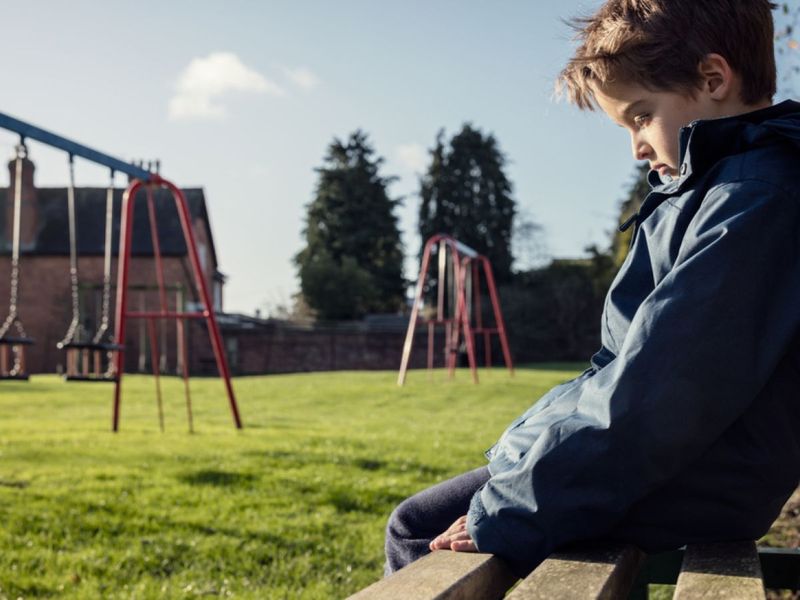Children have a natural curiosity that often leads them to wonder about the world around them. While they are usually not shy about asking countless questions, there are some questions that linger in their minds but remain unspoken. These questions may arise from a sense of embarrassment, fear, or simply not knowing how to articulate their thoughts. Understanding these hidden questions can provide a glimpse into their inner world and help us better connect with them. In this blog post, we explore ten questions that children might be eager to ask but often hold back.
1. Why do adults argue?

Arguments between adults can be perplexing for a child observing from afar. The loud voices and intense expressions might seem frightening, leaving the child to wonder why adults can’t always agree.
Children might not understand the complexities of adult relationships and disagreements. They may fear that arguments could mean something is wrong in their family.
Reassuring children that disagreements are a normal part of life and that love remains intact despite differences can help them feel more secure.
2. Why do we have to move?

The concept of moving to a new place can be baffling for a child who cherishes familiarity. They might wonder why they must leave their friends, school, and beloved surroundings behind.
Children may not fully grasp the reasons behind relocation, such as job changes or family needs. The disruption of routine and the fear of the unknown can be unsettling.
Providing clear explanations and involving them in the moving process can ease their anxiety and make the transition smoother.
3. What happens when we die?

The concept of death can be both confusing and frightening for children who are just beginning to understand life’s permanence. They may wonder where people go when they die and if they too will experience it.
Children may have been exposed to the idea of death through the loss of a pet or relative, sparking questions about mortality.
Providing gentle, age-appropriate explanations and fostering open conversations can help alleviate fears and build understanding.
4. Why is that person different?

Children are naturally observant and may question why someone looks, speaks, or acts differently from the norm they know. They might be curious about differences in appearance, abilities, or behaviors.
Such questions can arise from a desire to understand the diversity of the world around them. It’s an opportunity to teach empathy and acceptance.
Encouraging open dialogue and celebrating differences can nurture a child’s inclusive mindset.
5. Why can’t I have that toy?

The allure of a new toy can be irresistible for a young child, leading to questions about why they can’t have it. They may not understand the concepts of budget or necessity.
This situation often results in frustration, but it also presents a teaching moment about values and priorities.
Explaining the reasons calmly and empathetically can help children learn the importance of patience and appreciation for what they have.
6. Why do I have to go to school?

School can seem like a mysterious place filled with unfamiliar routines, rules, and faces. Children might wonder why they must leave home to spend time in this structured environment daily.
They may not yet see the value of education and social interaction that school brings. The early mornings and homework can seem unnecessary.
Helping them understand the joy of learning and making friends can transform apprehension into enthusiasm.
7. Why can’t I stay up late?

Staying up late can seem like an enticing adventure, prompting children to question bedtime boundaries. They might wonder why adults get to enjoy late hours while they must sleep early.
Sleep is crucial for their growth and development, a fact they may not appreciate yet.
Explaining the benefits of a good night’s rest in an engaging way can make bedtime more appealing and less of a battleground.
8. Why do I look different from you?

Children often notice physical differences between themselves and their family members, sparking curiosity about genetics and identity. They might wonder why they have different hair, skin, or eye color.
Such observations can lead to broader questions about ancestry and family heritage.
Discussing these differences in a positive light can foster a sense of pride in their unique identity and family history.
9. Why can’t I watch that movie?

The allure of grown-up movies can be tempting for young minds eager to explore new stories. They may struggle to understand why certain content is deemed inappropriate.
Parents set viewing restrictions to protect children from themes or images too mature for their age.
Explaining the reasons behind these limits can help children understand the importance of age-appropriate content and patience.
10. Why is the sky blue?

The vast expanse of the blue sky can trigger questions about the natural world. Children might wonder why the sky is blue and what makes it change colors at different times.
This curiosity opens the door to simple scientific explanations about light and atmosphere.
Encouraging these questions and providing engaging answers can nurture a lifelong love for science and exploration.

Well, hello there!
My name is Jennifer. Besides being an orthodontist, I am a mother to 3 playful boys. In this motherhood journey, I can say I will never know everything. That’s why I always strive to read a lot, and that’s why I started writing about all the smithereens I came across so that you can have everything in one place! Enjoy and stay positive; you’ve got this!

